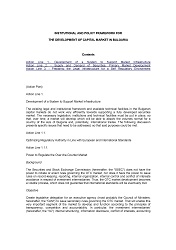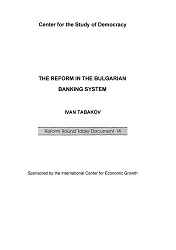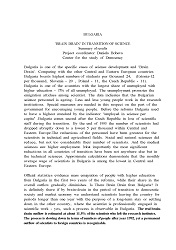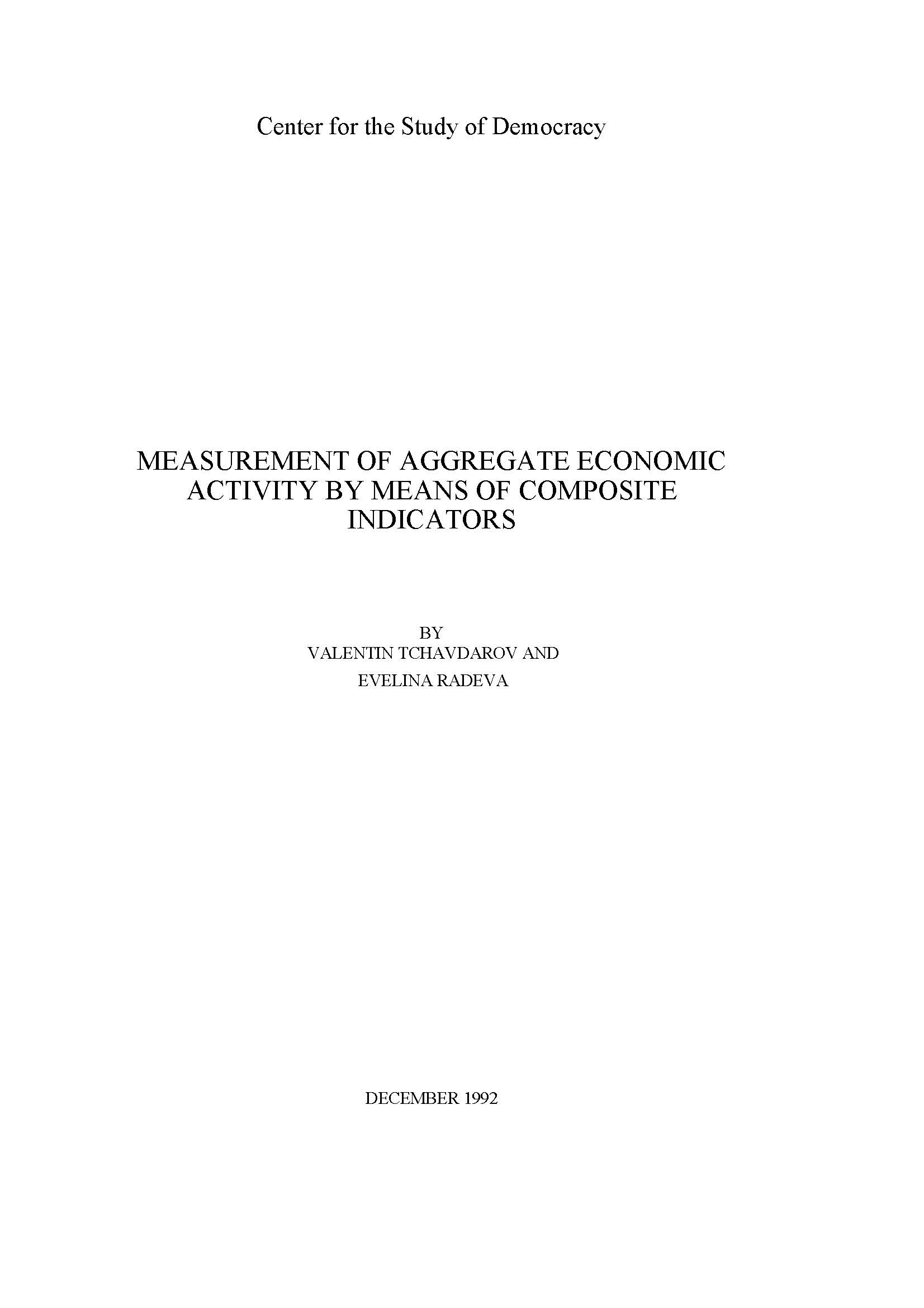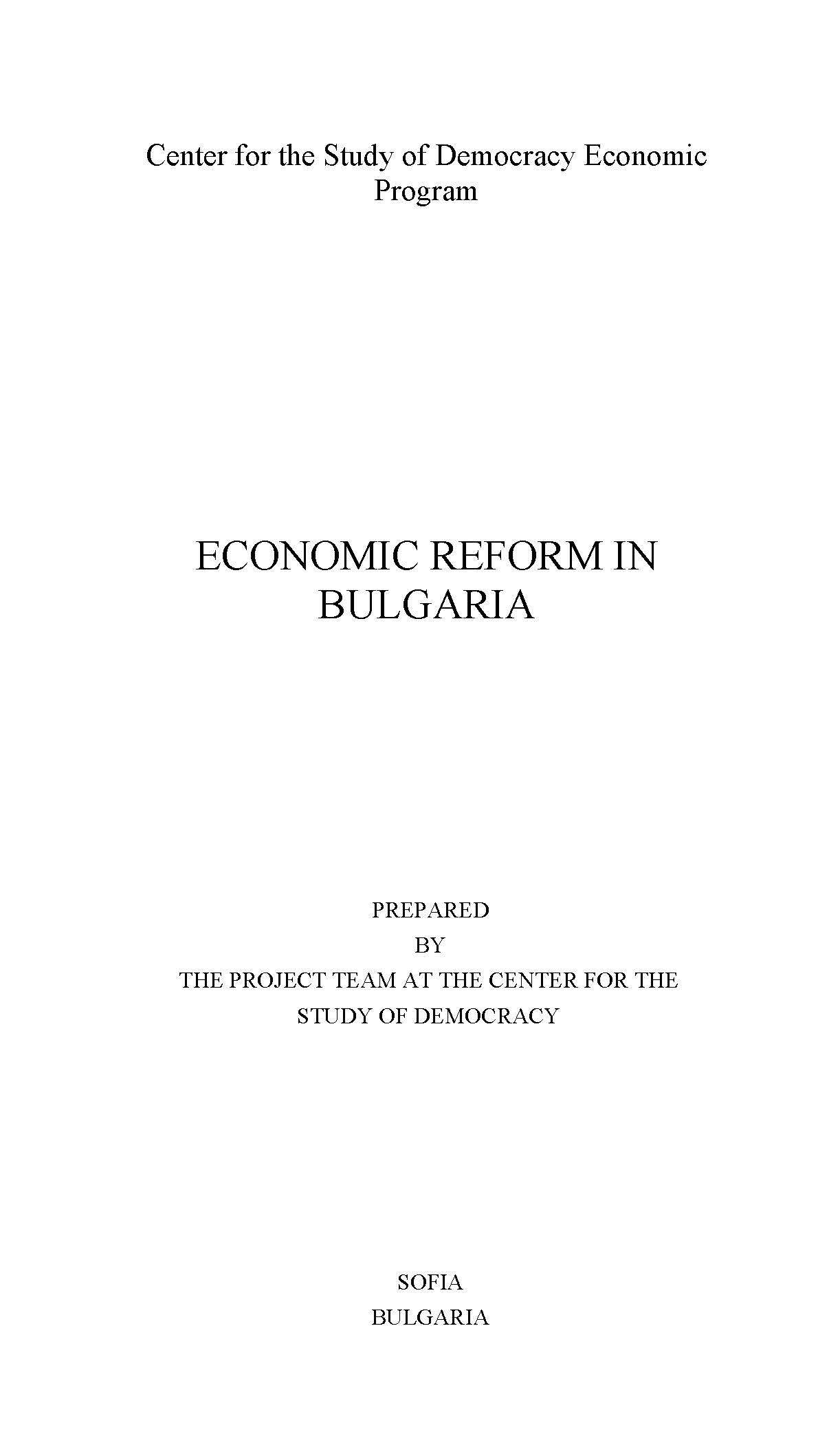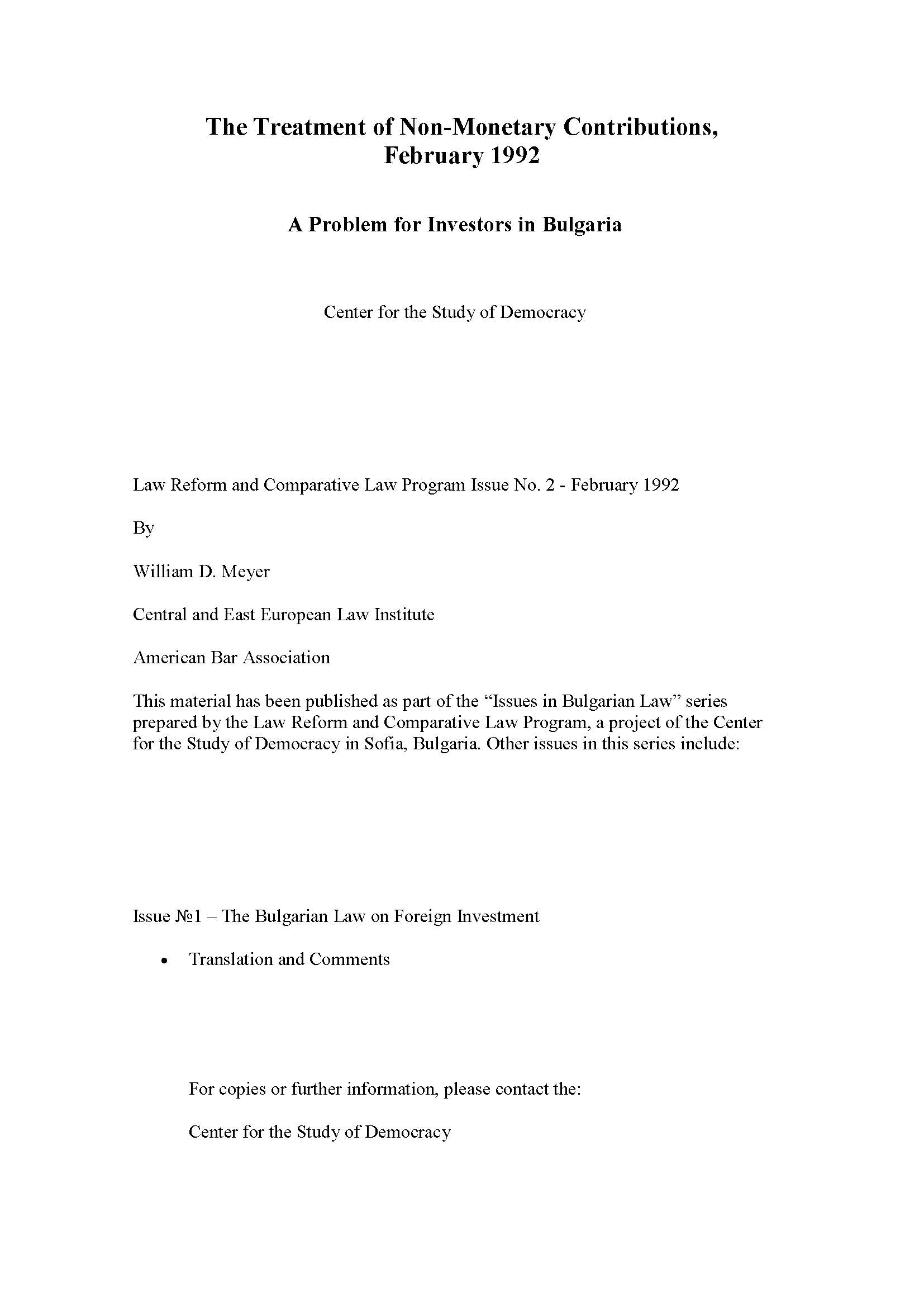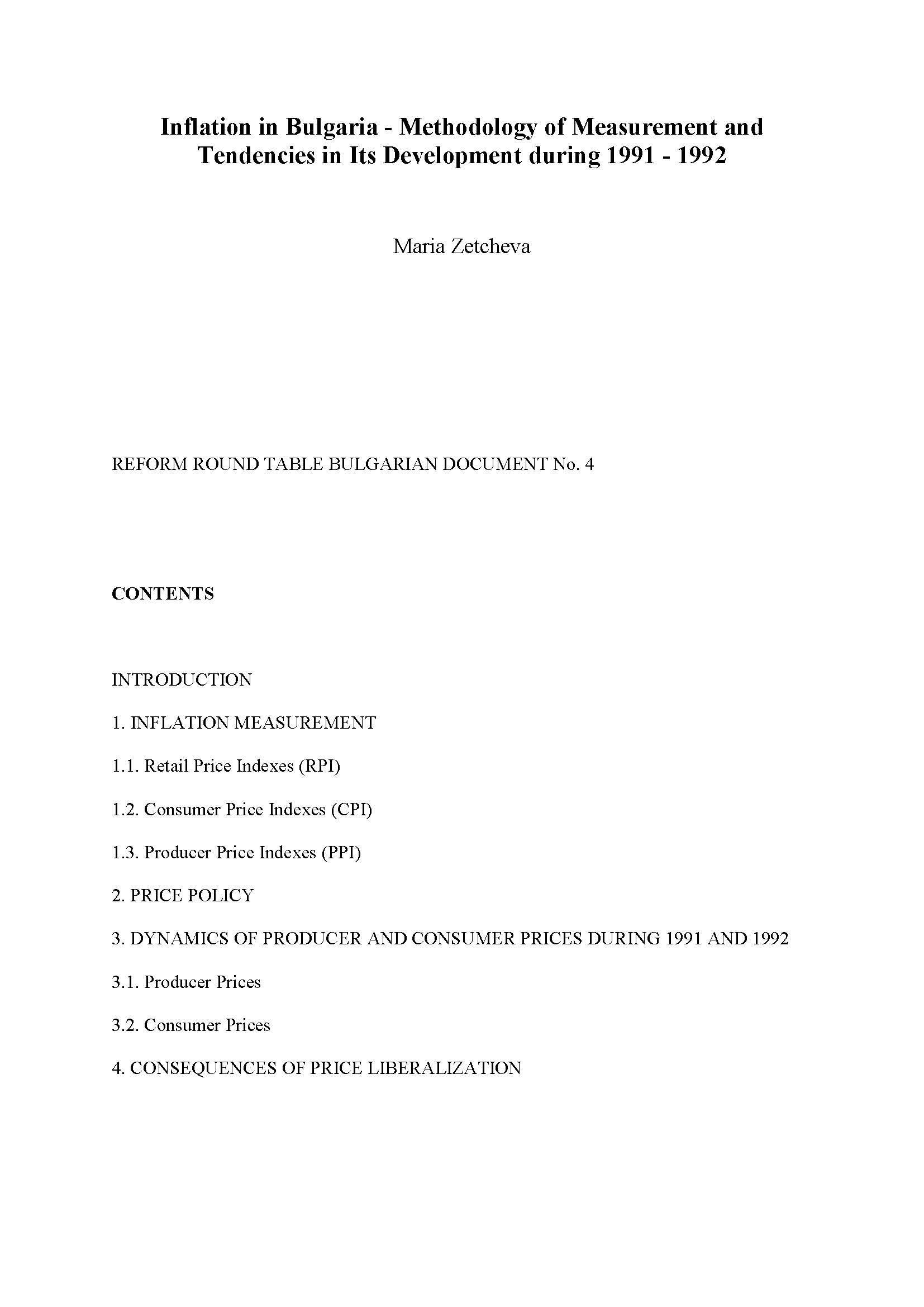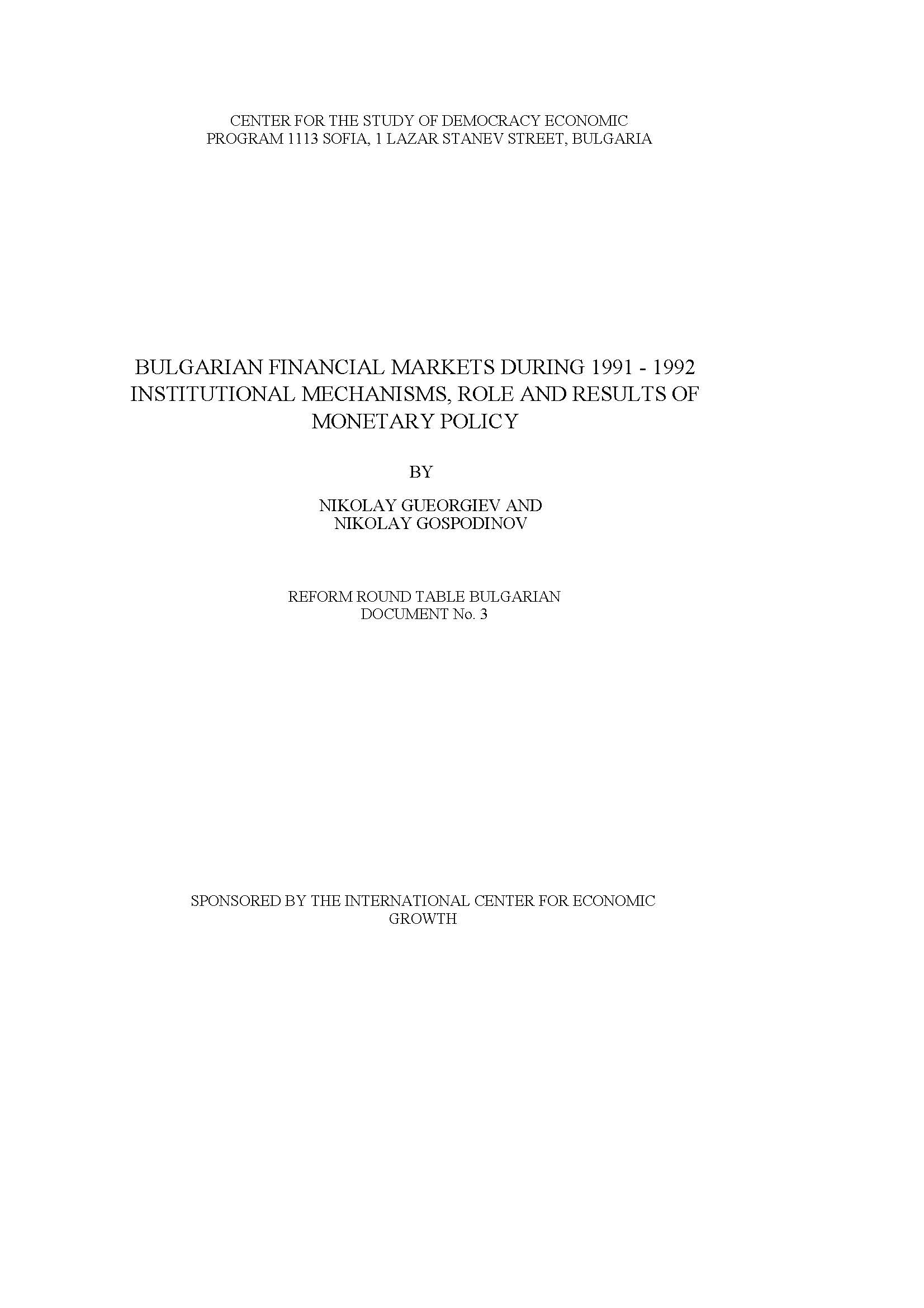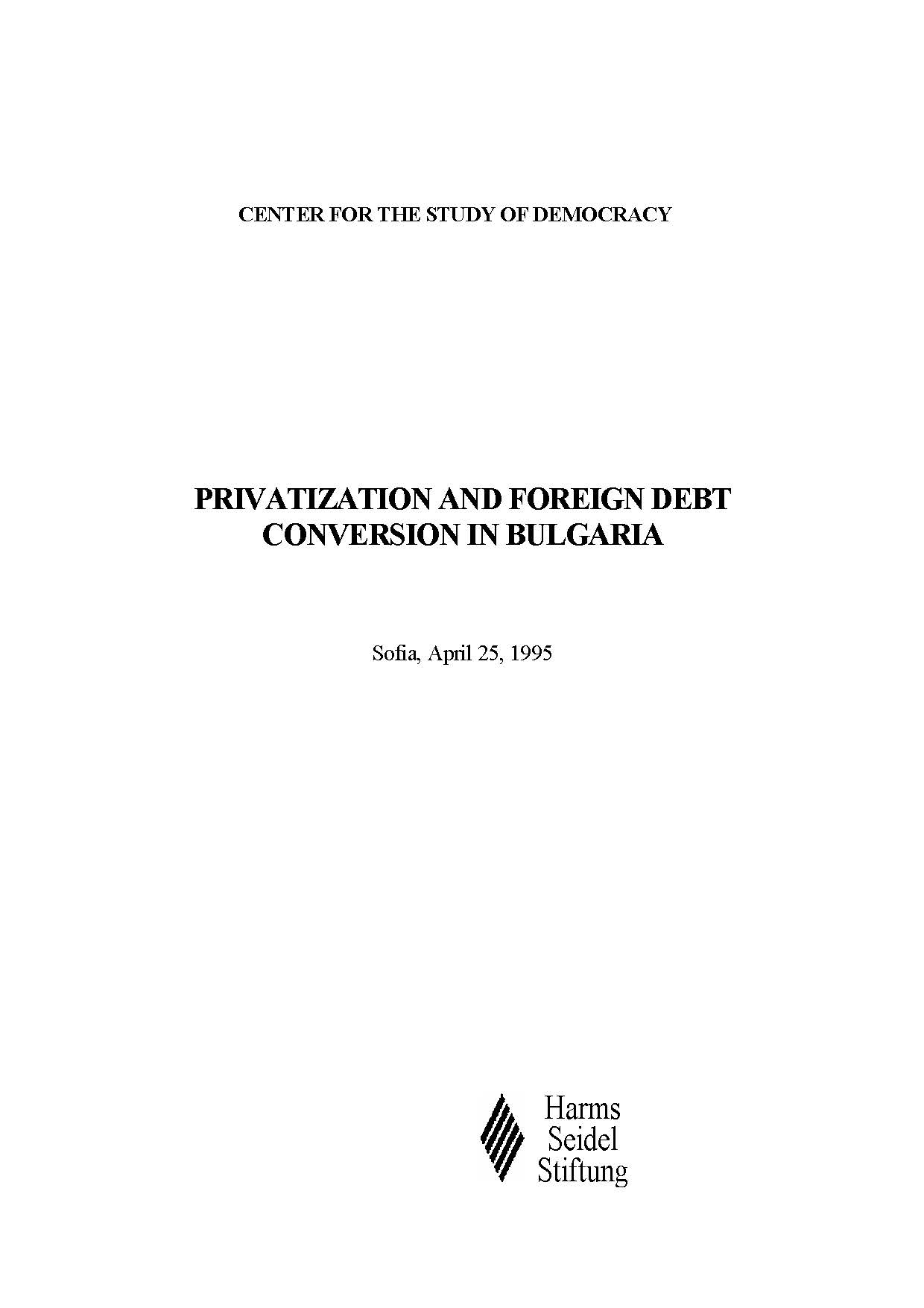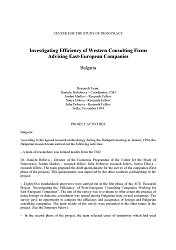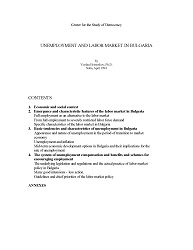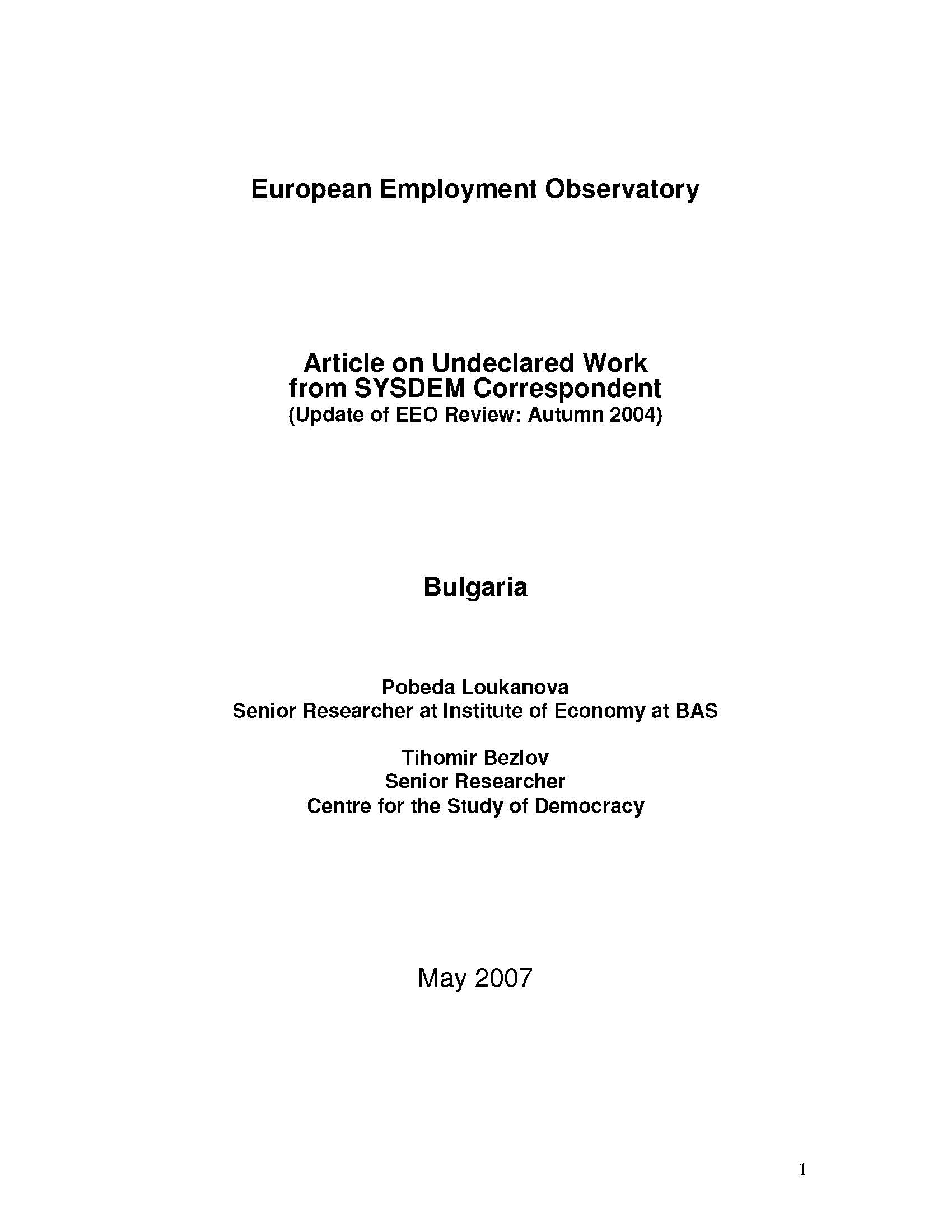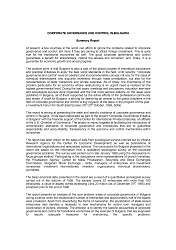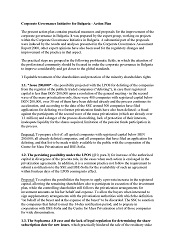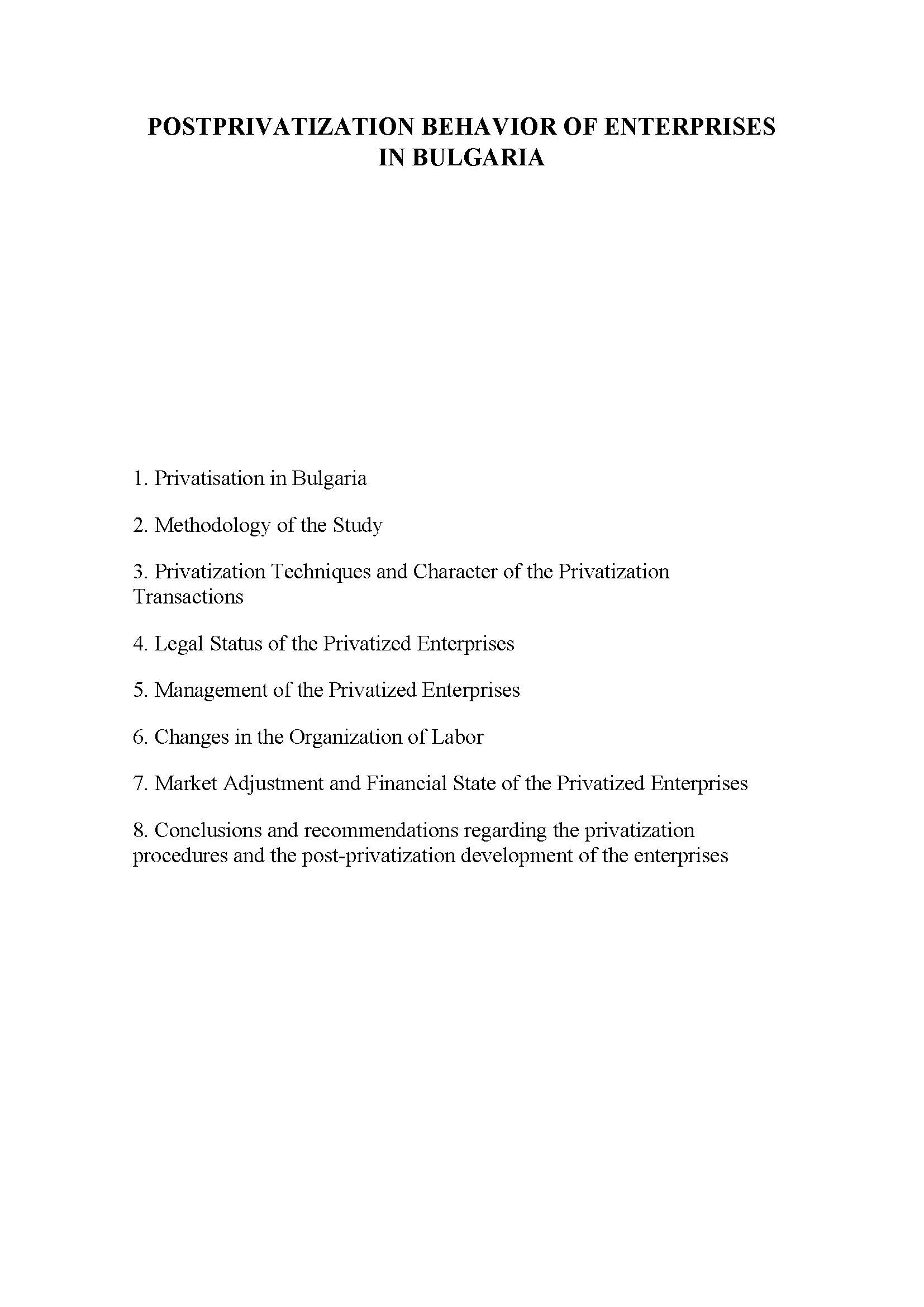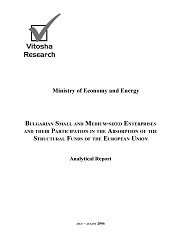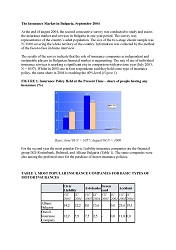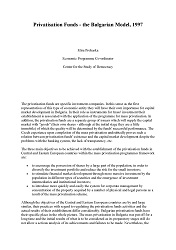
Privatisation Funds - the Bulgarian Model, 1997
Privatisation Funds - the Bulgarian Model, 1997
The privatisation funds are specific investment companies. In this sense as the first representatives of this type of economic entity they will have their own importance for capital market development in Bulgaria. In their role as instruments for 'mass' investment their establishment is associated with the application of the programme for mass privatisation. In addition, the privatisation funds are a separate group of issuers which will supply the capital market with "goods" (their own shares - although at the initial stage they are a little immobile) of which the quality will be determined by the funds' successful performance.
More...
